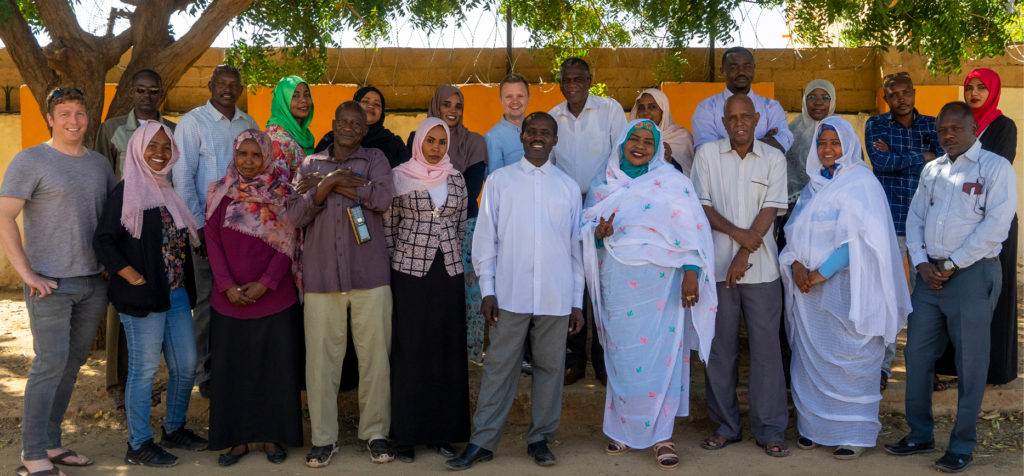As Brand Content Officer at Practical Action, I have been lucky enough to see our fantastic programme work across the world and meeting fantastic colleagues from many of the different countries we work in. Here I am with the team from our El Fashir Office.
I have a great job

I was in Darfur to meet people we are working with and communities we are hoping to work with, to capture their stories to use in our three month Turn the Tables on Climate Change campaign.
We’ve been doing this for a while
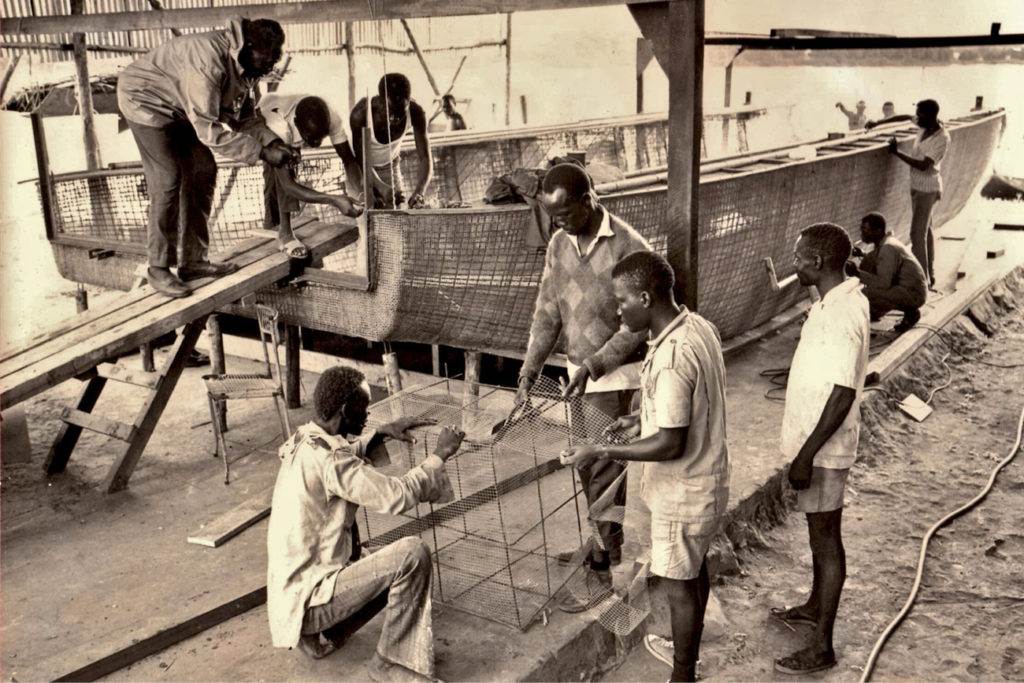
Our work helping farmers in Sudan adapt to the changing climate has a long history. In 1978, heavy rain in Juba made roads impassable. We taught farmers to make small ferro-cement cargo boats that were both flexible and manoeuvrable for transporting crops. (Photo credit: Practical Action)
Fighting climate change is no fad
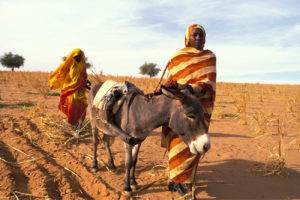
Fast-forward to the 1990s, when our training and innovative solutions were helping farmers plough their land more efficiently, despite more frequent droughts and more erratic rainfall. Over 1,300 ploughs, like the one in this photo, were made by local blacksmiths and distributed. (Photo credit: Practical Action)
The scars of civil war
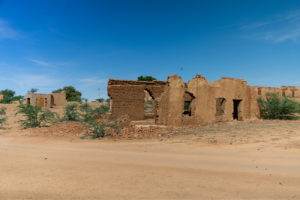
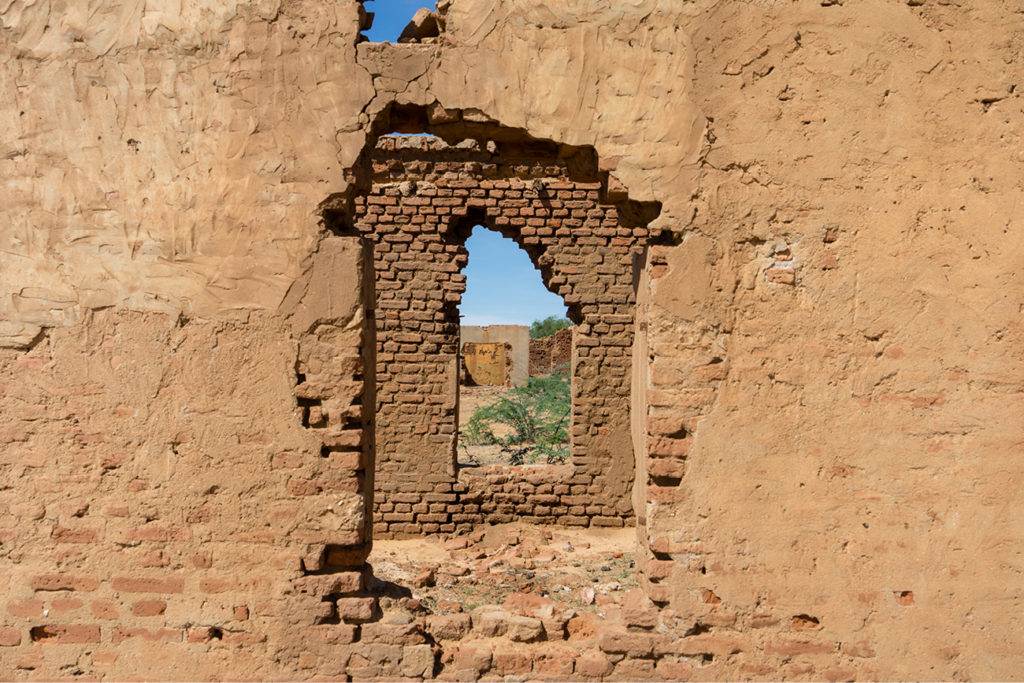
During Sudan’s civil war, whole villages in the North Darfur region were burned to the ground. People have returned but creeping desertification and erratic rains, made worse by climate change, are turning the formerly productive land into desert. It means people face having to leave their homes once again, risking conflict with other communities over natural resources.
Failed crops
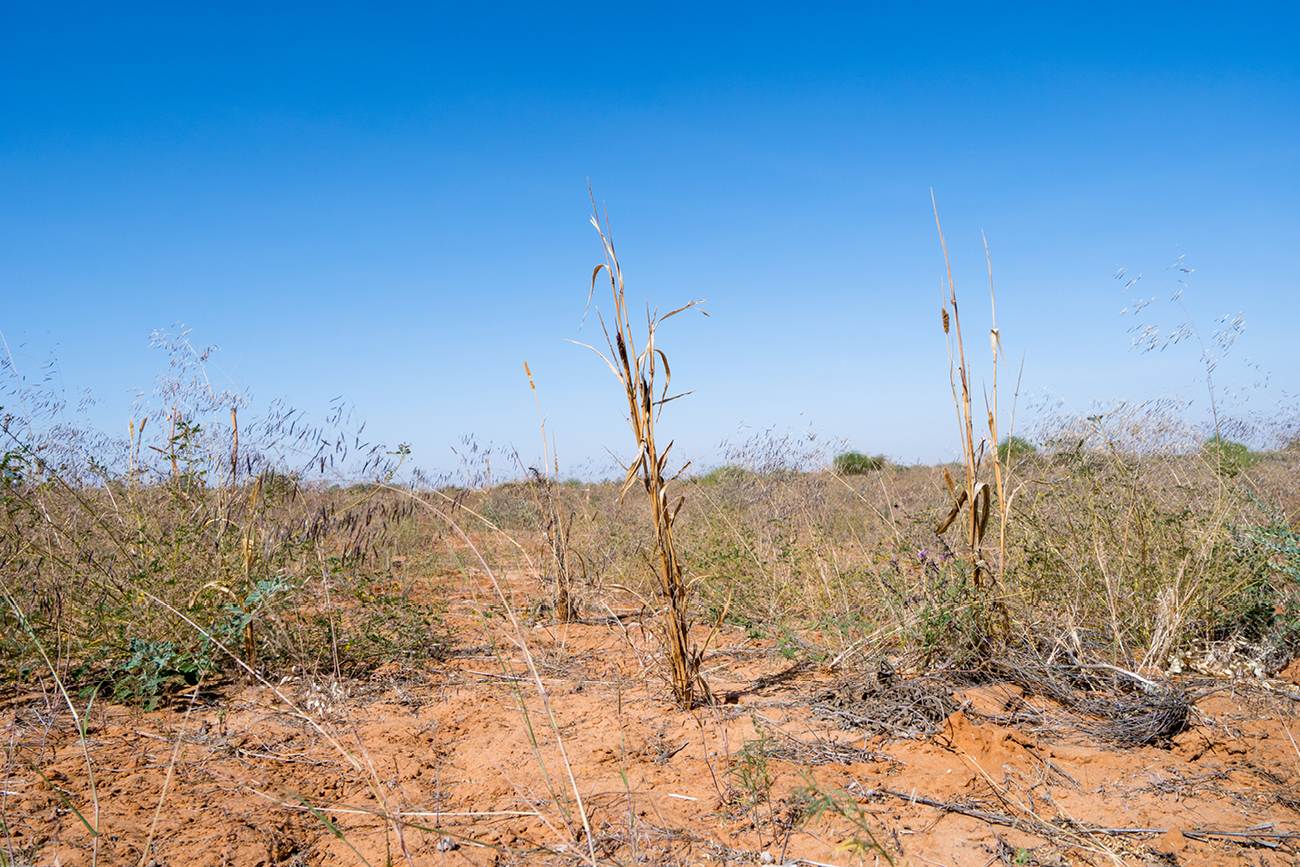
North Darfur is one of the most drought prone areas of Sudan. In recent times, climate change has worsened the cycle of prolonged droughts and flash flooding. Growing crops and raising animals has never been tougher. An influx of people once displaced by conflict, now moving back to villages has meant more trees lost for firewood and more land turned to desert.
Collecting water shouldn’t take all morning
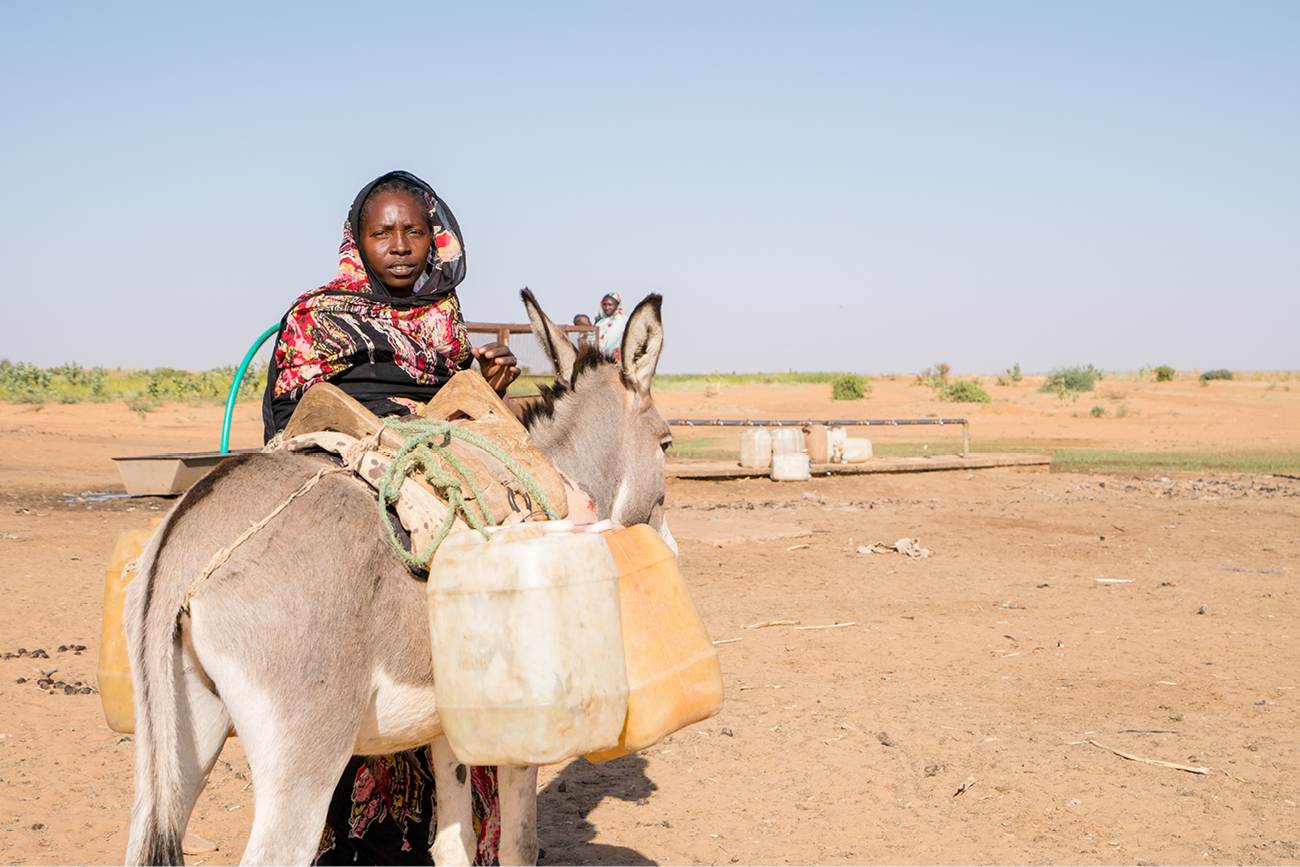
The task of collecting water for the farm and household falls disproportionately to women and girls. Hours each day are spent walking to and from the water source and queuing to collect water.
Korga Dam
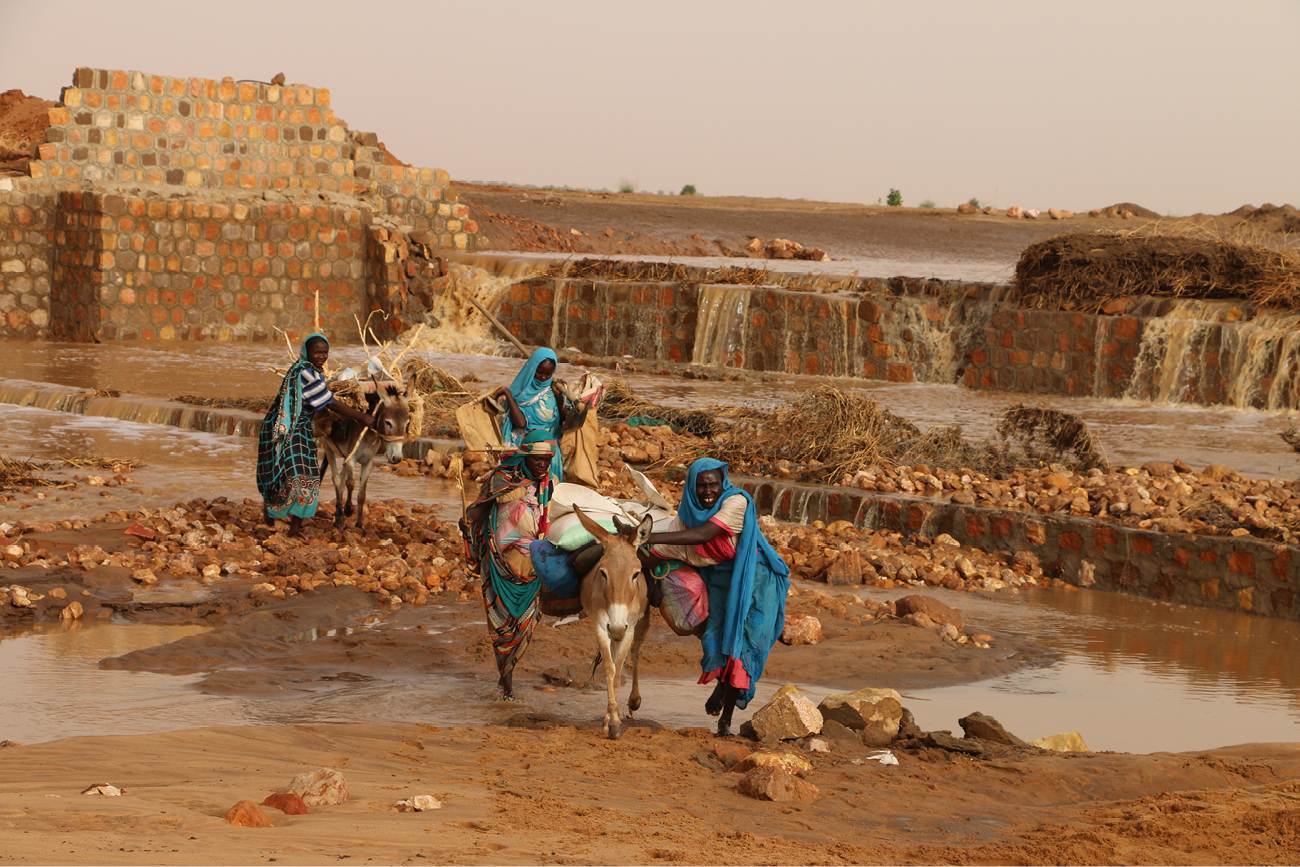
As the climate in Sudan has changed, water management has become increasingly important. This is the Korga dam, built in 2016 with our support. Our water management techniques mean that water is more plentiful and closer to hand, leaving women with more free time for business and family. (Photo credit: Awadalla Hamid Mohamed, Practical Action)
Moonrise
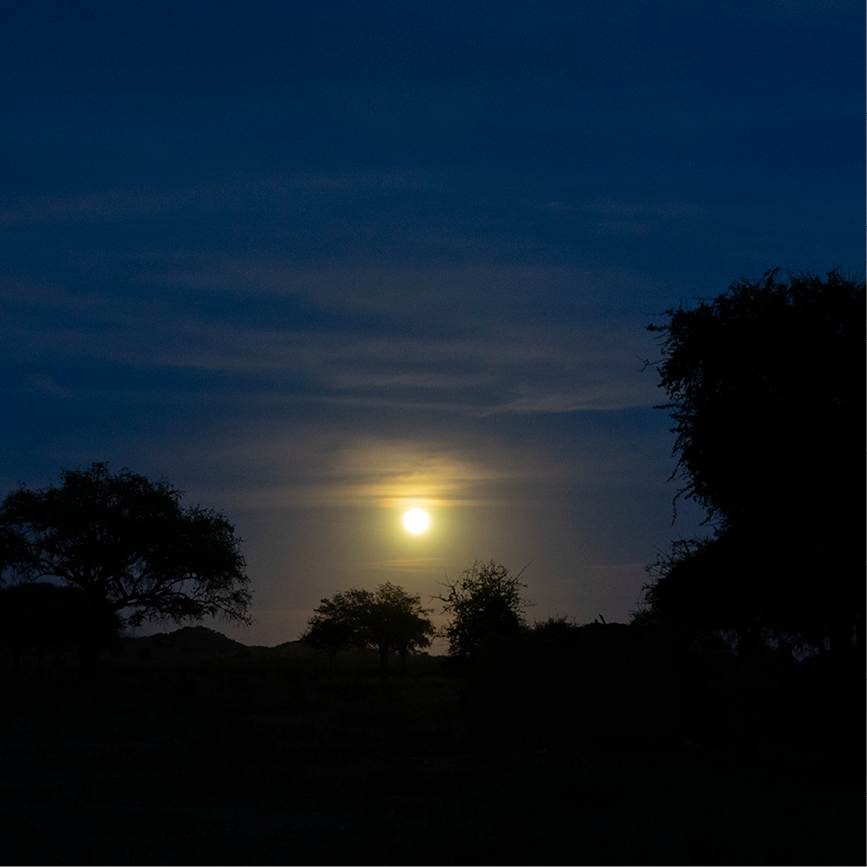
The light from the full moon is a welcome sight in Sudan, where only around half of households and businesses have the luxury of electric lights. Our long-standing presence in the country and our local knowledge puts us in the perfect position to understand and work with local challenges like these.
Harvest
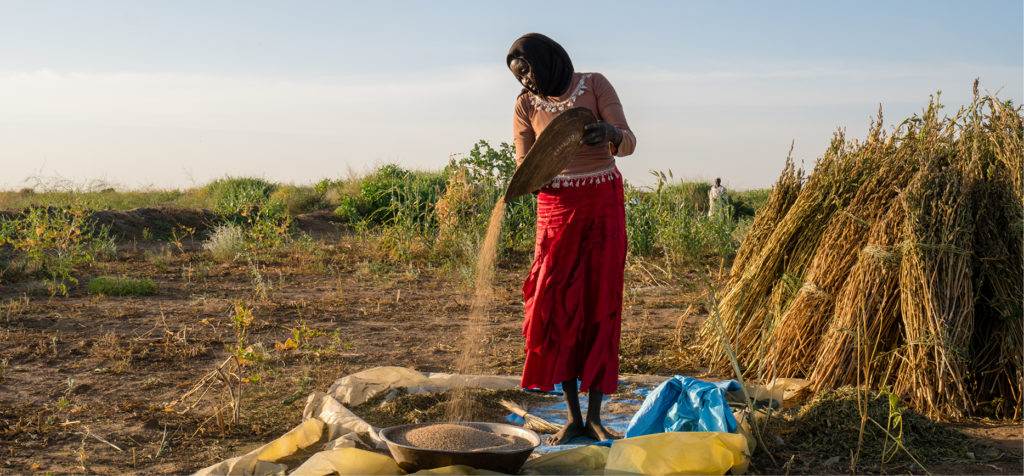
At harvest time in North Darfur, manually threshing crops is a time-consuming and physically demanding chore. Here, Sitelahal uses a flat basket and a sweeping action to separate the edible grains from the surrounding chaff.
Tree planting to protect the land
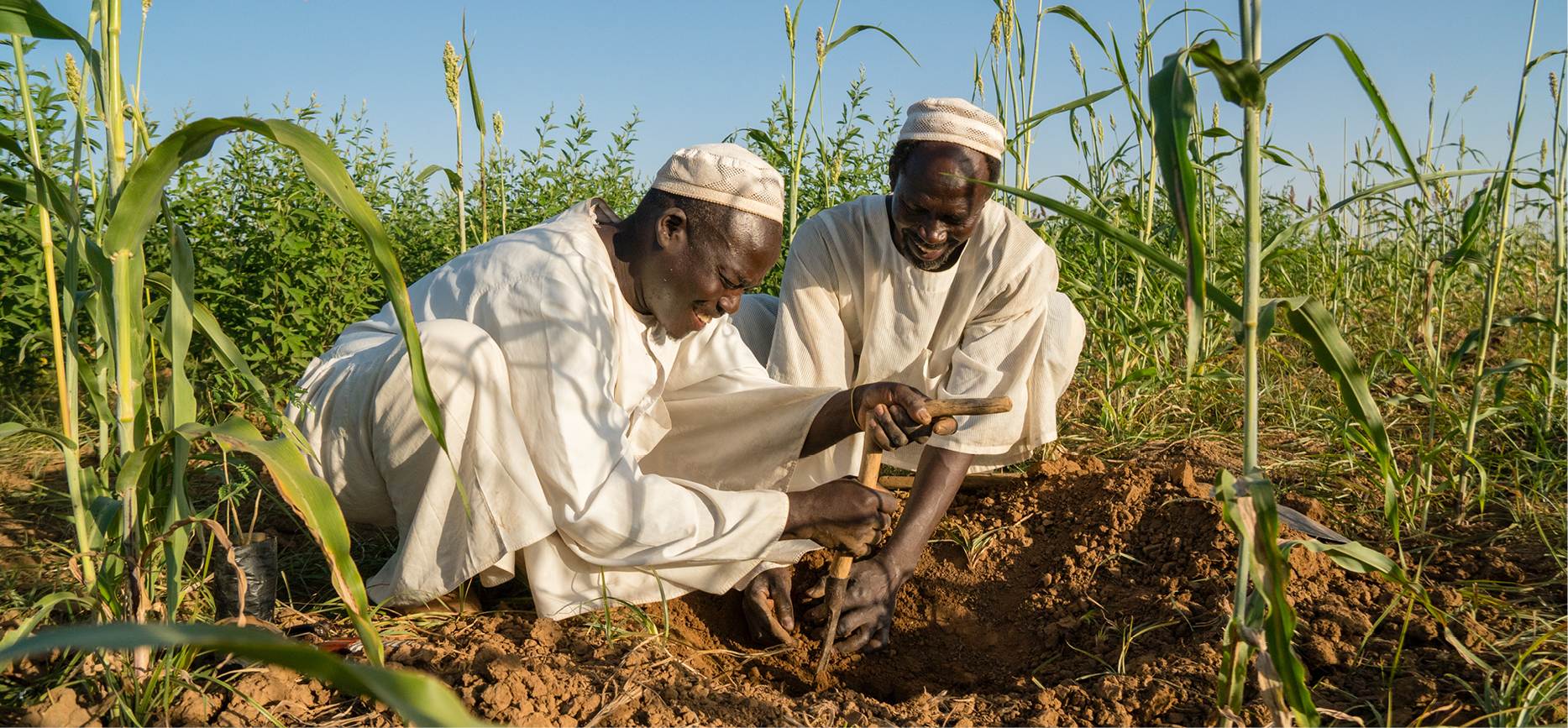
Farmers Suliman and Hafiz plant trees on land which had previously been barren. Communities have used our innovative water management techniques to conserve precious water. They can then use this to irrigate farmland and the new saplings, which revive the soil and protect the landing from the encroaching desert.
Cascading effects of bountiful harvests
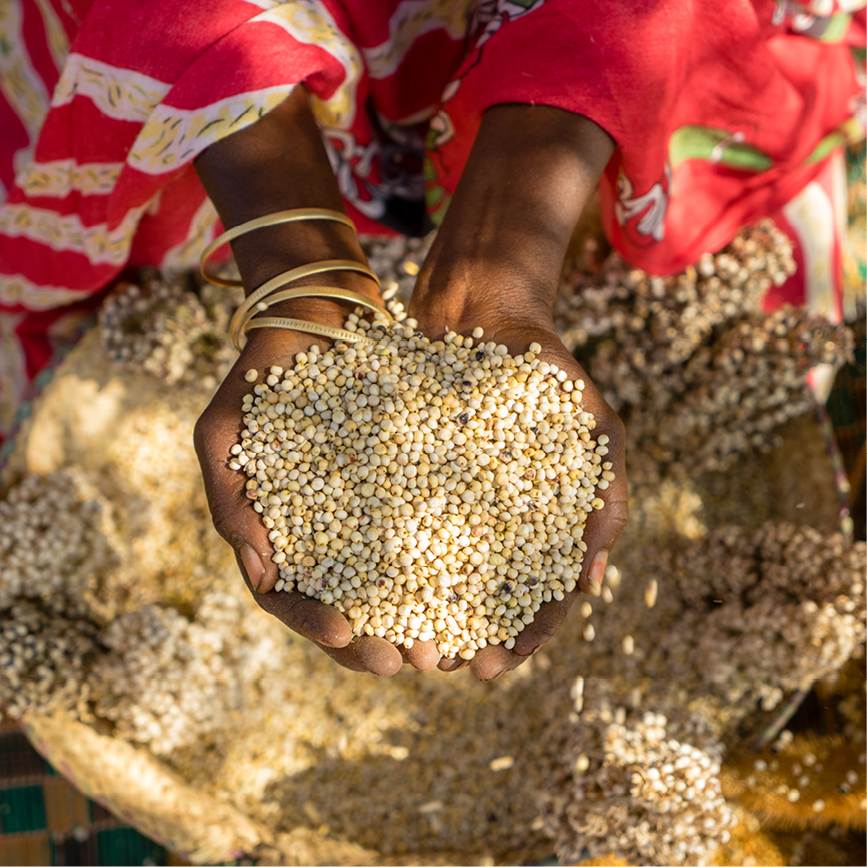
Our work in North Darfur has led to bigger harvests for the region’s farmers. More corn for threshing means more nutritious food to eat. That, in turn, means better health for families and bigger smiles on the faces of smallholder farmers.
Variety is the spice of life
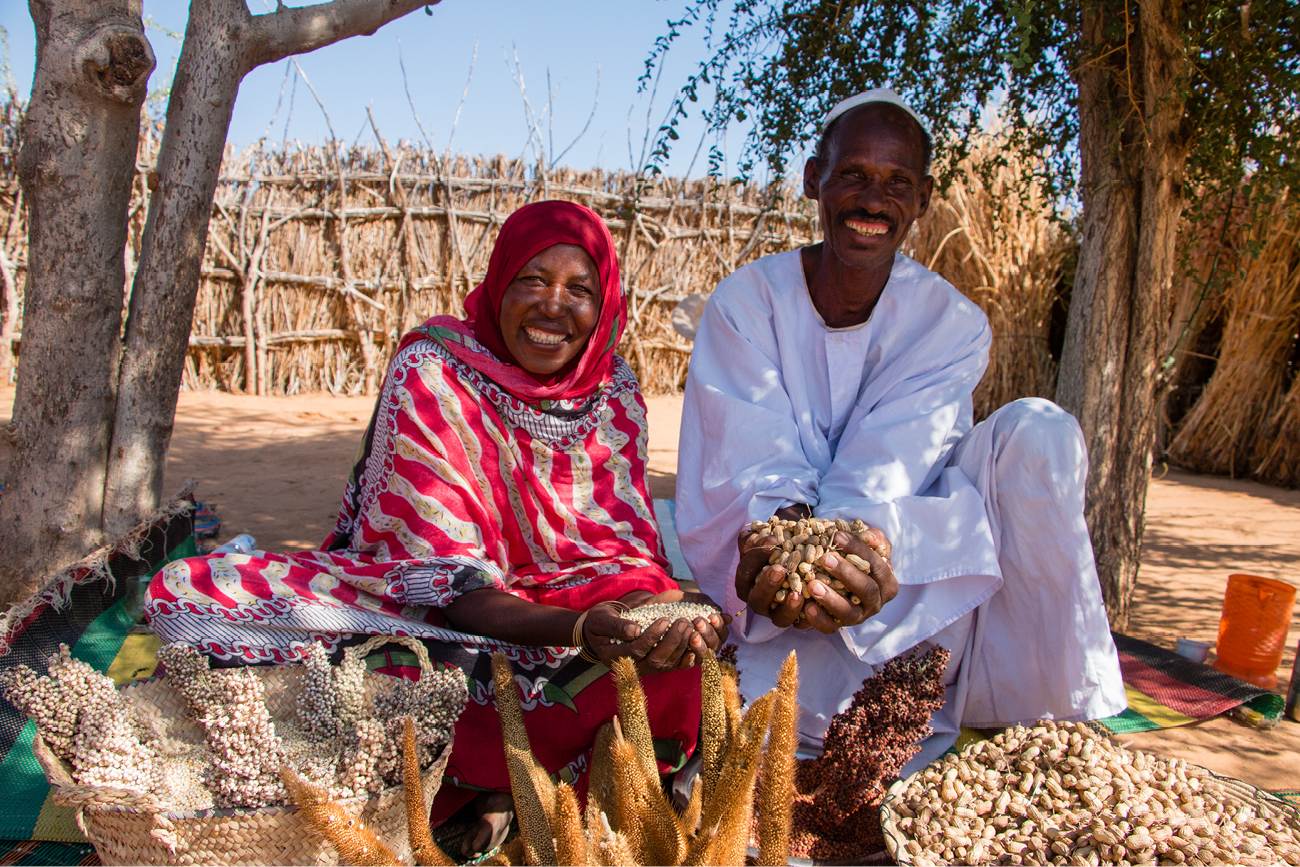
Most people living in North Darfur are reliant on the grains millet and sorghum for nutrition. Climate change means that growing these sustaining crops is becoming more and more difficult. Our work with farmers, which includes water management training and introducing hardier seed varieties, is helping them grow bountiful harvests once again.
Bustling markets
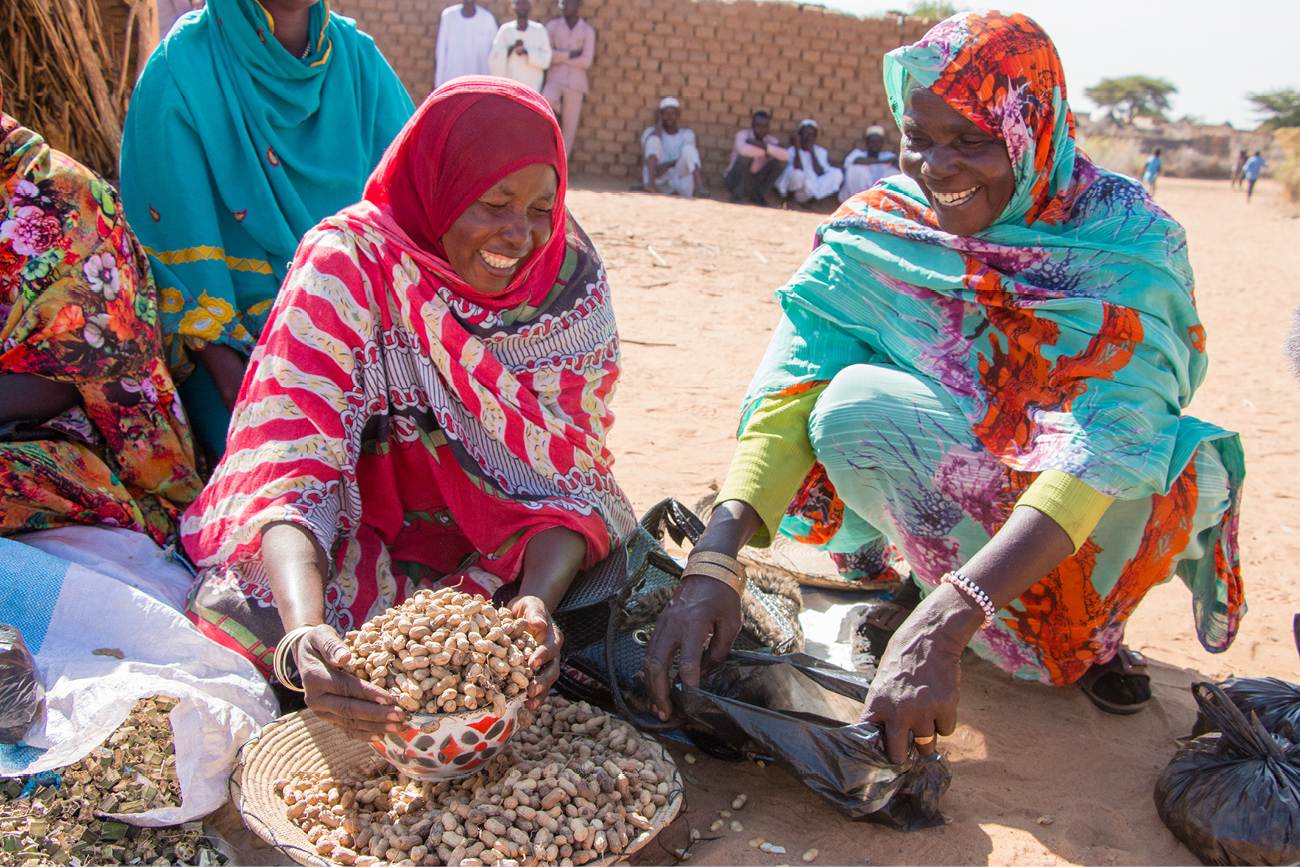
Through our agricultural and business training, we’re not only helping farmers improve harvests but also work together for a better income. Since working with us, Sitelnisa is not only growing enough food to feed her family, she has enough left over to sell at market.
Green is in season
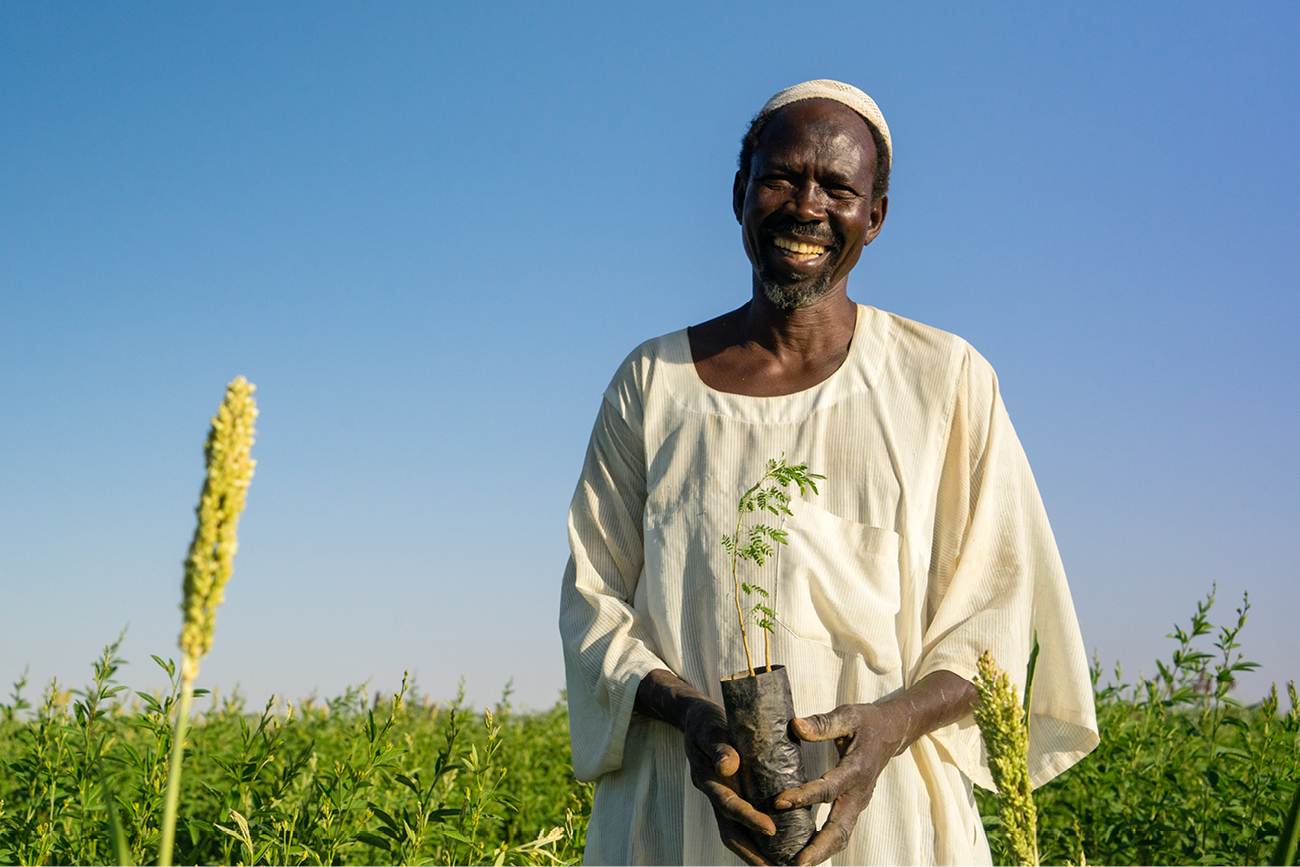
Regreening areas of land that were previously desert shows we can grow the impossible and rejuvenate barren soil. The tree roots hold the soil together, preventing it from collapse. Above ground, trees act as a windbreak, lessening the impact of destructive sandstorms. Meanwhile, farmers’ crops benefit from the extra nutrients release into the soil.
Talented and passionate colleagues
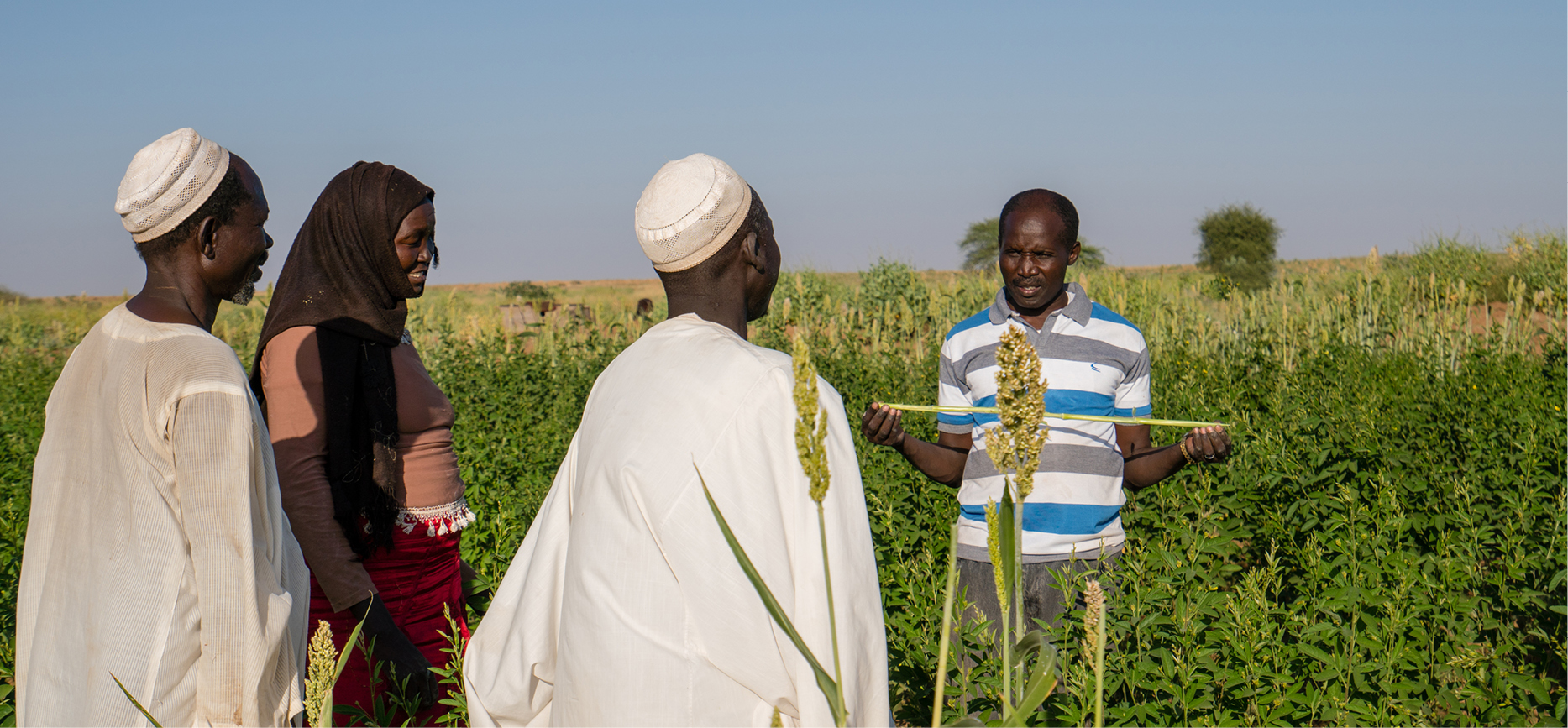
Awadalla, from our El Fashir office, talks with Suliman and his family on their farm in North Darfur. Our local teams spend much of their time in the field, providing training, advice and support to the communities we work with.
A place for pastoralists
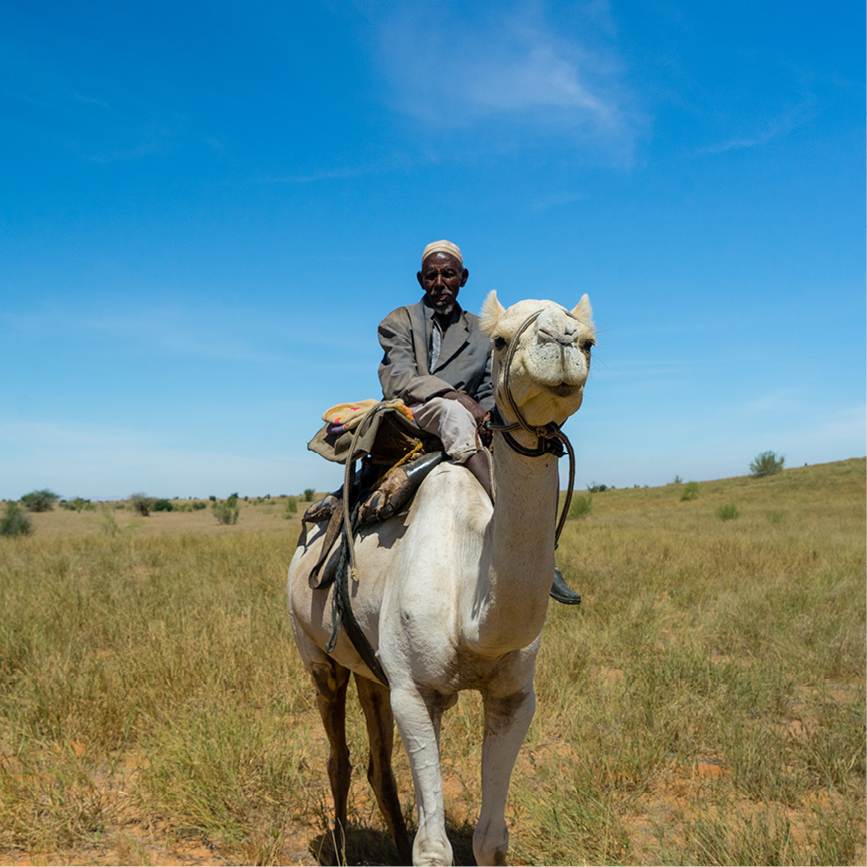
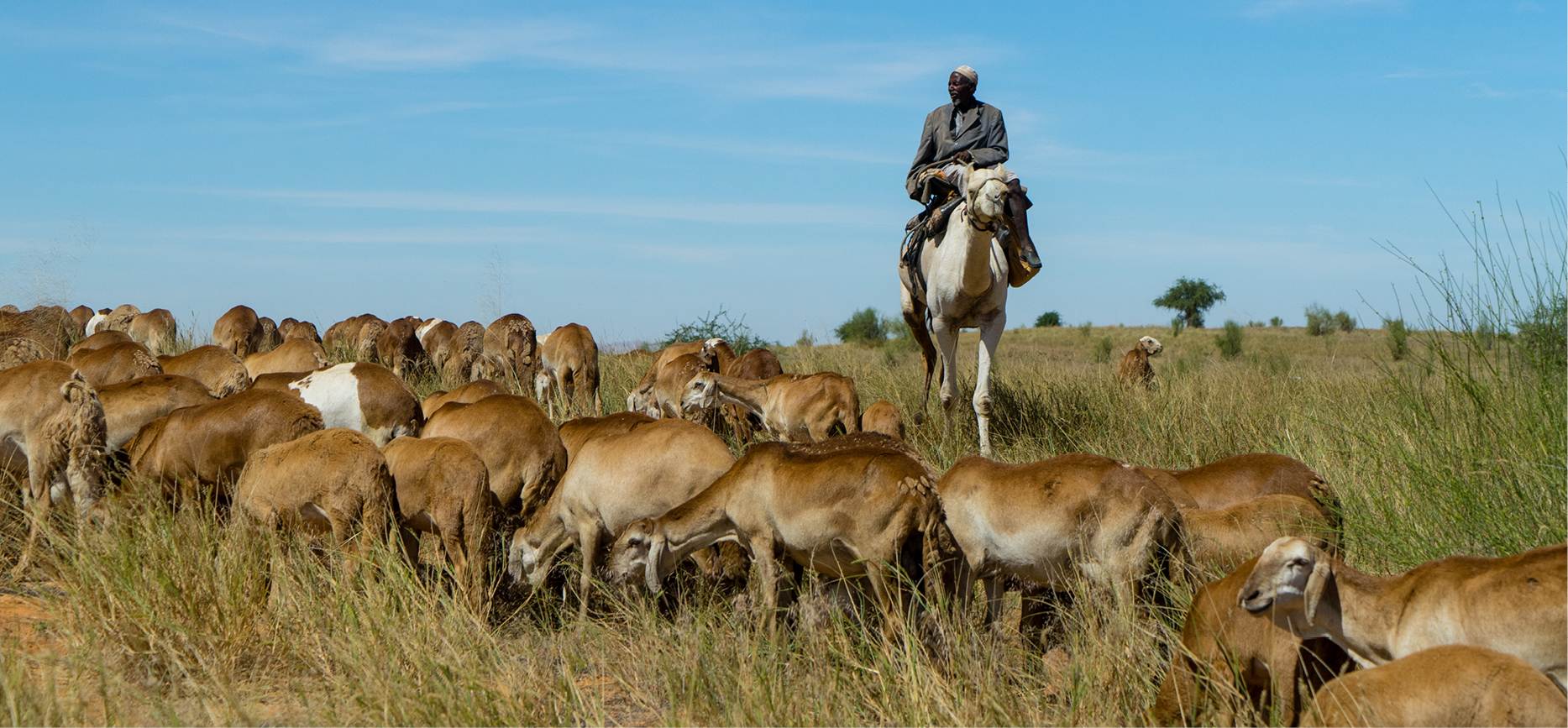
The loss of fertile farmland forces communities to compete over natural resources. Whilst arable farmers livelihoods are threatened, pressure is put on pastoralists too, who need pasture to feed their animals. This tension was partly responsible for the deaths of more than 300,000 people in the region at the turn of the century. The war has been described by many, including former UN Secretary General Ban Ki Moon, as the world’s first climate-change war.
Building peace
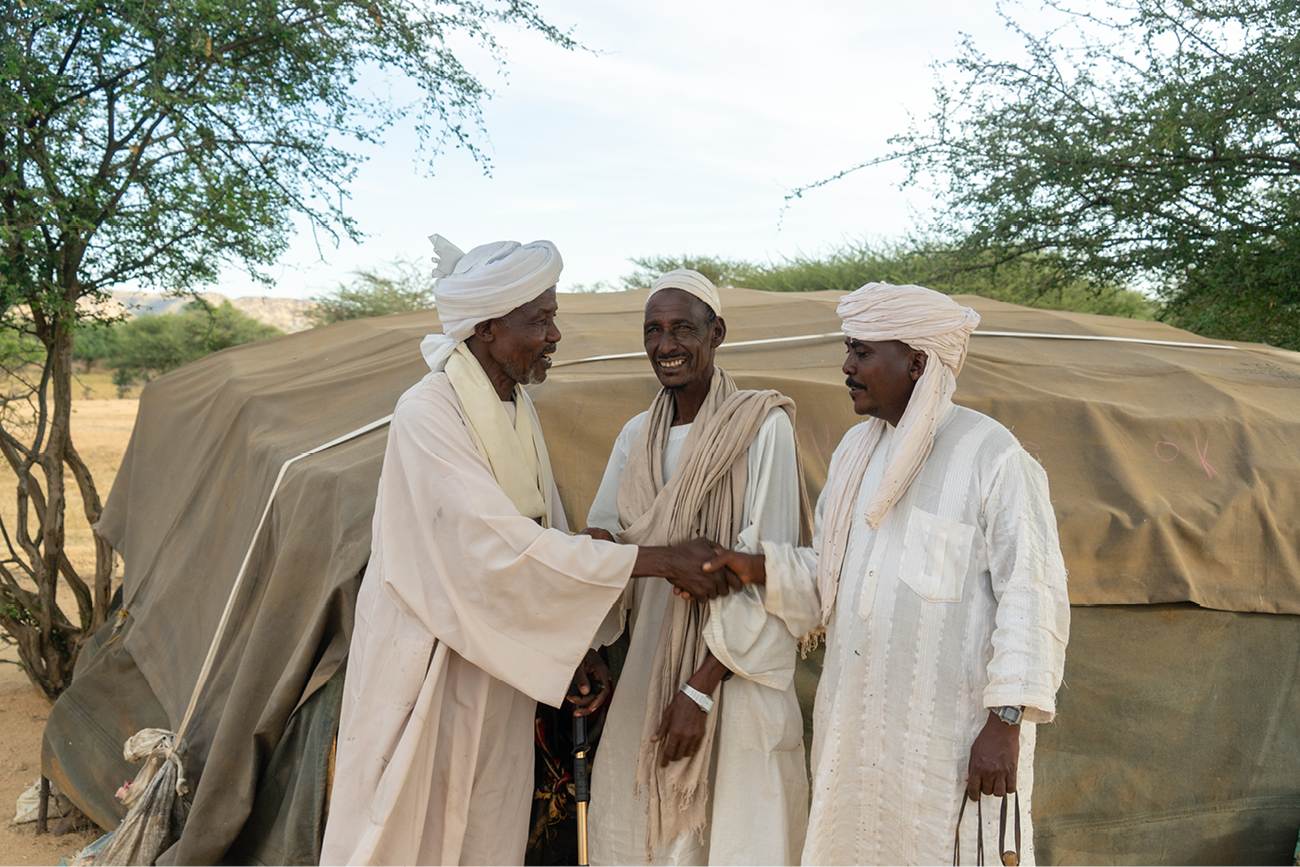
At our peacebuilding workshops, farmers and pastoralists are meeting to find a shared way forward. These neighbours, who have clashed so violently in the past, are working together with our support and coming to new agreements about how farmland and water can be used and shared.
Hope for the next generation
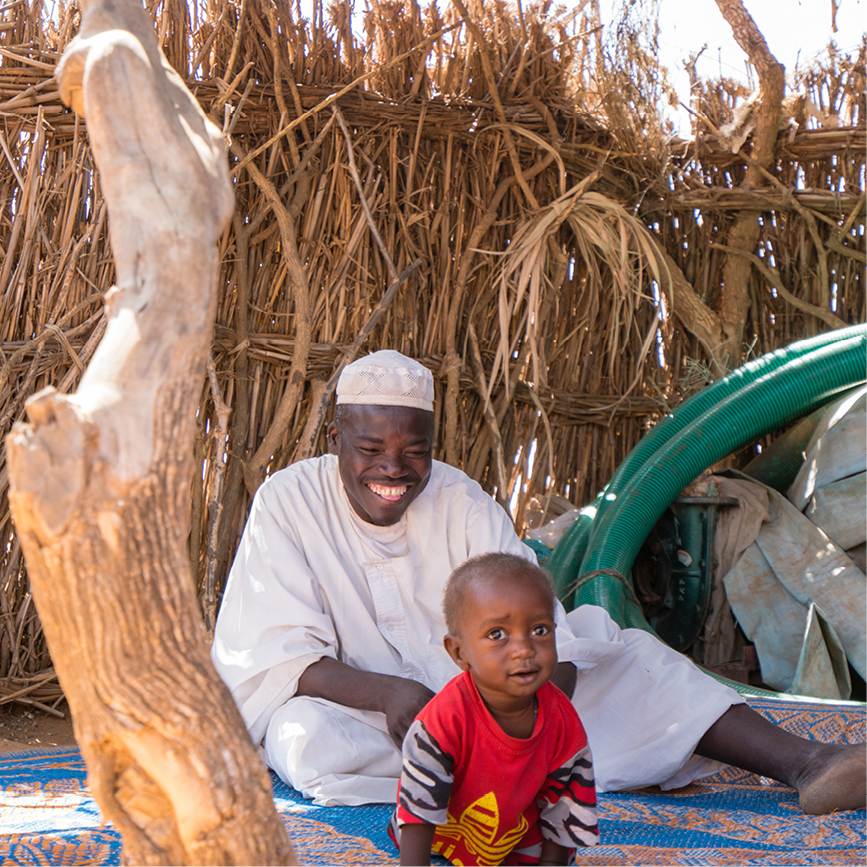
“When I read about the climate crisis in the international press, it’s usually presented as something that’s going to cause people problems in the future. Here in Sudan, we don’t have the luxury of time – people are living with the negative impact of the climate crisis every single day.” – Awadalla.
Want to help turn the tables on climate change?
Of course, you can donate to our Turn the tables appeal, but sharing this blog, our videos and following Practical Action on social media also helps too.
Want to know more?
Head over to https://practicalaction.org/turn-the-tables/ to see more about our work in Darfur and watch the video I filmed and produced from my time in Sudan.
